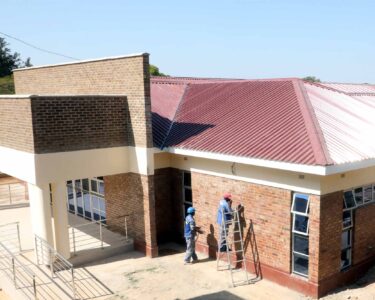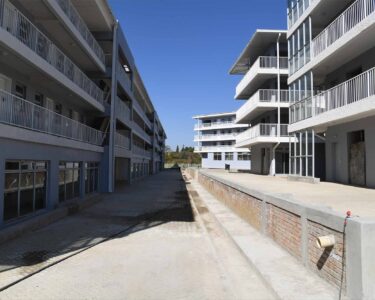… Road rehabilitation goes ‘in-house’
Devolution, or the use of its funds, has been so successful in Masvingo Province that the local office of the Ministry of Transport and Infrastructural Development has resorted to the use of what they call an “in-house model” in rehabilitating roads. Baffour Ankomah reports.
The first beneficiary of the “in-house model” of road rehabilitation has been the Zimuto-Chatsworth Road, which starts from Masvingo city (off the Masvingo-Mutare Road) and proceeds all the way to Chatsworth, 58 km north of Masvingo, on the Masvingo-Gweru railway line. Chatsworth started as a small settlement in 1911 and grew into a railway station. Today it is administered under the Gutu Rural District Council.
But the road from Masvingo through Zimuto to Chatsworth, that serves the people of that area, was so bad that in 2018, supported by devolution funds, the local office of the Ministry of Transport decided to rehabilitate the road, which at the time had been tarred for only 8 km from the Masvingo end.
And instead of the normal practice of awarding the job to a contractor, the local office of the Ministry decided to do it itself, using an “in-house model” it had developed. The model involves the Ministry hiring road equipment and local labour and using its engineers to do the job themselves.
In the case of the Zimuto Road, the “in-house model” turned out to be cheaper than awarding the job to a contractor. In the end, the Ministry spent just 11 million RTGS to do 13.5 km of the road, which it tarred to international standards.
When the funds ran out, the work stopped in 2020. The local office of the Ministry is awaiting more funds to continue the rehabilitation work.
Engineer Shadrach Kativhu of the local office of the Ministry of Transport, who conducted a visiting team of Brick by Brick editors along the road on 14 February 2023, recounted how “terrible the road was before we started our work, so it was very important to upgrade this road.
“And we did it in-house. We hired the equipment from contractors and hired local labour to build the road,” he continued. “We didn’t give it to any contractor. We did it ourselves. It was cheaper to do it ourselves, in-house, because the prices of contractors are usually on the higher side.”
What importance?
Asked about the importance of the road to the Masvingo province, Engineer Kativhu said: “It is the shortest route to go to Gutu and even coming from Harare, it cuts the journey by 20 km. You can also come through Chivi and Gutu, then via this road, it is much shorter.
“Also, the whole community in this area uses this road. So it is very important to this province. We are doing it in phases. We are left with about 28 km to reach Chatsworth. We first started with 7 km, and then did the other 6.5 km. We did all the tests and the road met the standards. Over 90% of the material used were sourced locally.”
Continuing Kativhu said: “If we are capacitated, we will replicate the in-house model on other roads in the province. We need to be capacitated with road-making equipment by the government as has been done to other departments and city councils. We are the lead ministry when it comes to roads, but our equipment is too old and not fit for purpose currently.”
Asked what were the challenges preventing them from doing the other 28 km of the road, Kativhu said: “It is just funding. If we get the funding, we will be able to complete the road. But these decisions usually come from our principals. The Masvingo City Council and CMED now have road-making equipment and we can use them.”
Kativhu praised President Emmerson Mnangagwa for “giving us the opportunity to showcase ourselves that we can do these things, just like what is happening on the Harare-Masvingo-Beitbridge highway where 5 local contractors have been given the opportunity to showcase their capabilities.
“Similarly, though we are the smaller guys in the province, we can also do roads like the Zimuto Road and others. By doing so, we will be creating employment for the locals because most of the manual workers we used on the Zimuto Road were from the local community.”
‘We don’t eat roads’
With the experience of the Zimuto Road behind him and how the rehabilitation has impacted the lives of the people of the area, Kativhu was asked to comment on the “we don’t eat roads” negativity of certain Zimbabweans who claim to despise the government’s road-building efforts. The engineer was smitten: “People saying that are misinformed,” Kativhu said. “This is a link road for business people in this area, to go to Masvingo to buy products to restock their shops, So they need a good road. Without this road, no business will succeed in this area. Even when the road was bad, it affected the smooth running of business. So how can anybody say ‘we don’t eat roads’?”
Thankfully, that ostentatious cynicism has no place in the Masvingo Province, where the provincial government has really taken devolution, and the use of its funds, to another level, so much so that the following roads have all either been done or being done, under devolution: Bhuka-Mashava, Makwi-Neshuro, Gutu-Kurai, Gutu-Buhera (and the Zimuto-Chatsworth of course). The Nyika-Zaka and Masvingo-Mutare roads have also been resealed, while the Rutenga-Zvishavane road is under construction. Elsewhere, the urban roads in Chiredzi are expected to be completed by the end of 2023.
As the Minister for Provincial Affairs, Hon Ezra Chadzamira, explained: “Road connectivity is key for inclusive development. Roads promote access to economic and social services with positive effects on agricultural employment and productivity in rural and urban areas. They also facilitate internal and external market integration.”
As a result, in 2022, under the Emergency Road Rehabilitation Programme 2 (ERRP2), the province completed the resealing of the following roads: Chivhu-Lothian (10 km), Ngundu-Tanganda (20 km), Lothian-Triangle (10 km), and Masvingo city urban roads (26 km).
The province received $1.2 billion devolution funds in 2022 and used the money to build clinics, schools and other projects. To date, the province has completed 170 projects under devolution and more are at different stages of completion.
Explaining why the province has been so successful with devolution, Minister Chadzamira said his office now has a permanent secretary for provincial affairs and devolution to account for day-to-day business of the office.
In addition, work has been shared among governance co-ordination competencies. Thus, the office now has directors who make the coordination of government business and the development taking place in the province, better. The competencies include: economic affairs and investment, infrastructure planning, finance, administration, and human resources.








